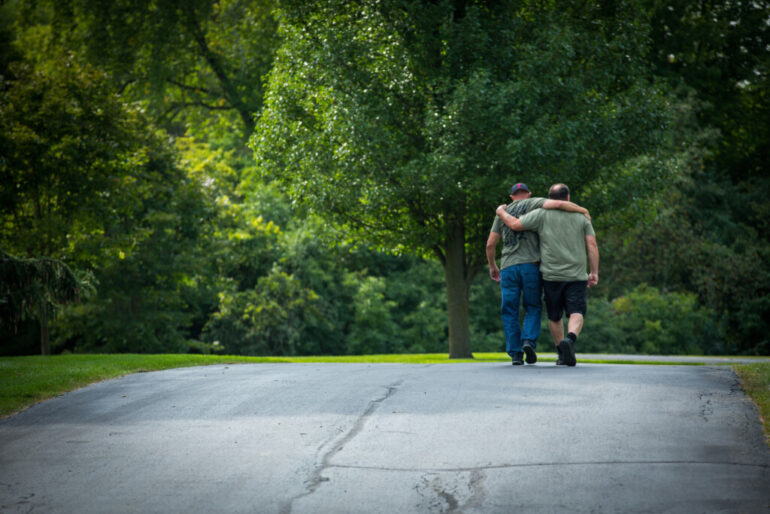In 2015, Queen Brown, a 62-year-old Chicagoan in the West Loop, was struggling. Even though she’d been sober for several years, she had fallen ill, lost her job and was living in a transitional home when a volunteer suggested she join an Ignatian Spirituality Project retreat — and she agreed.
A self-described “city girl,” Brown initially felt uncomfortable in the bucolic Frankford, Illinois setting, uncertain what to expect from a spiritual retreat. But when she heard a former attendee telling her recovery story, something stirred in Brown. “It was heartwarming to hear her just so openly tell us her story. Everything just got emotional. She just gave her story away so easily. She wasn’t crying, but we were, and so I was touched.” After breaking out into smaller groups, Brown said, “The overwhelmingness just came over me, and stuff started spilling out of me. Then people were crying and asked me for a hug. A lady said, ‘You just told my story.'”
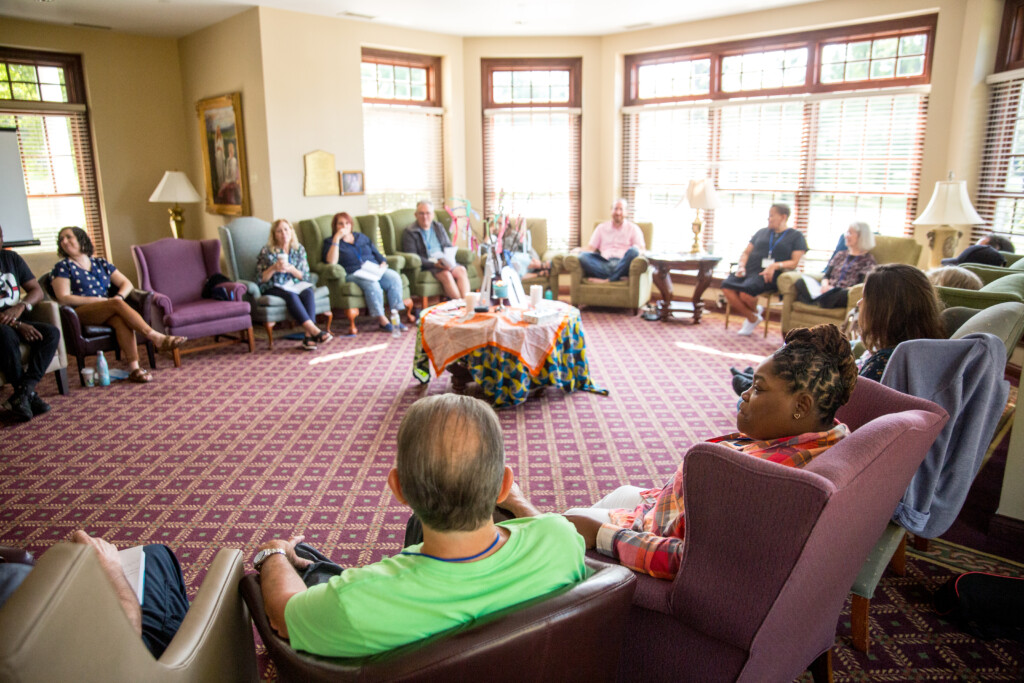
ISP invited Brown to share her experiences at another meeting a few weeks later. “They said, ‘You just do what the lady before you did.'” While it was painful to relive her experiences of addiction and housing struggles, Brown received the same emotion and gratitude she had felt listening to others’ experiences at her first retreat. “It opened my eyes to see things from other people’s perspectives. The healing started because I started having compassion for other people who were hurting like I was.”
Ignatian Spirituality Project is a 25-year-old Chicago-based ministry that hosts retreats, days of reflection and ongoing support to give spiritual care to people recovering from homelessness and addiction. Case managers and social workers at partner agencies — in more than 20 locations in the U.S. and abroad — refer candidates they think would benefit from the experience. “We cover all the costs,” said Christine Curran, ISP’s Executive Director. “We provide transportation to a beautiful place at a retreat center in nature where they can close the door behind them; they have their own room, they have quiet time and they can enjoy good meals. It’s this wonderful time to be away.”
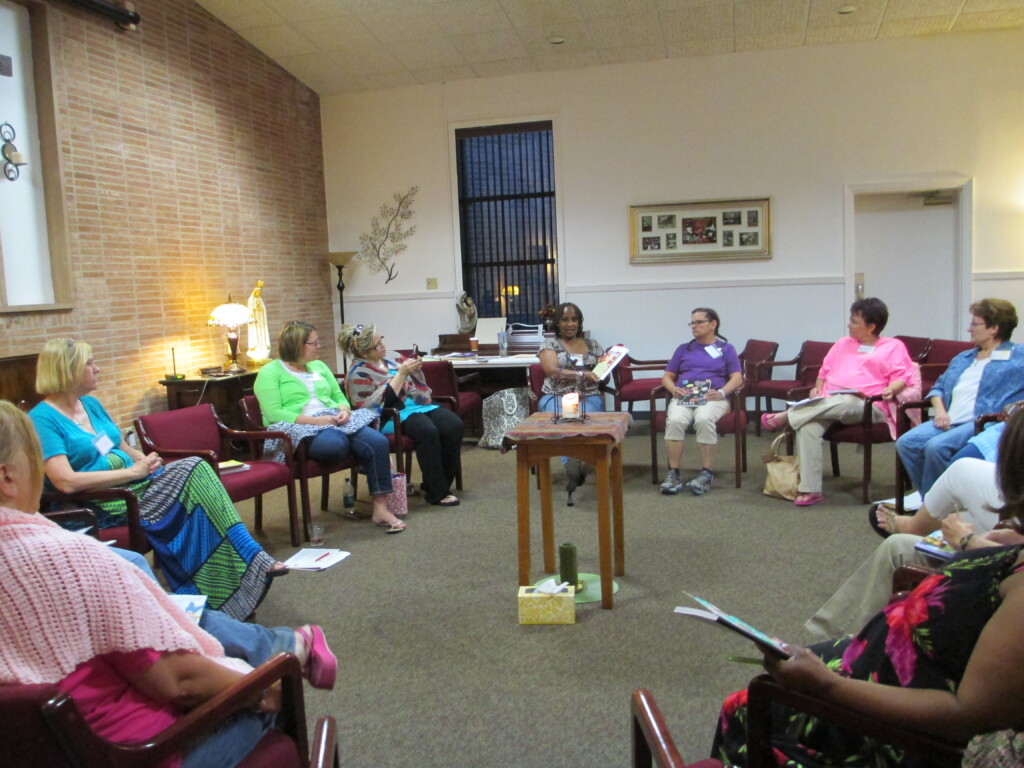
To participate, candidates must be at least three months sober and not currently unsheltered. While ISP is Jesuit-based, Curran says, “We don’t proselytize.” The group relies on the 12-step model, so the aspect of God is up to the participants’ interpretation. “The spiritual component of our lives is an important piece for many of us as we recover from substance use addiction,” Curran said. It’s integral for many people to say, “I can get sober, but what am I living for? What is my purpose?” Whether it’s a presence of love or some mysterious force, she says, “As long as it’s something positive in your life and gives you light, energy and hope, that’s good enough for us.”
“They’ve given me the opportunity to just be me,” Brown said. “I don’t have to fabricate and put on a mask or facade about who I am. That’s what I appreciate about [ISP]. They accepted me for who I was and gave me room to grow at the same time, to become better.”
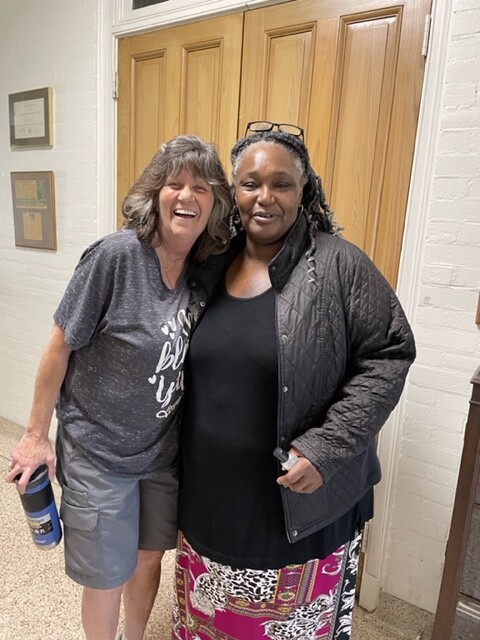
The spiritual element of recovery does not replace the other ways participants rebuild their lives. “We’re not a ministry that’s saying you need to find Jesus, and everything’s going to be fine,” Curran said. “You need really good housing support, many people need psychological care and there’s substance use recovery.” But, she added, “The retreats I’ve been on, women’s body language and their expression and the way they interact changes in 36 hours. You hear them say, ‘I can make small changes. I am someone who is lovable and who can love. There is this possibility of change.’” She said their case managers report, “It’s just different: this woman is interested in working her case plan. She’s not fighting with her roommate. She’s participating in groups. We don’t know what you did, but her heart is in a different spot.”
After participating in a retreat, volunteers invite guests back as a “witness” to share at other retreats and reflection circles. This process is part of the 12th step: carrying the message to others. That kept Queen Brown in the fold. “Every other two or three months, I was getting a phone call and it seemed like [when I did], it was during depression. My phone would be ringing and it would be somebody from ISP, and it was like something was lifted off of me. I got something to look forward to.” She said it was meaningful to listen to other women share their stories with her as a witness. “That was deep to me because they trusted us enough with this information. We as an addict or a homeless person, we have trust issues. For somebody to trust us, that meant a lot. So the barriers was being broken down, the walls was coming down, the gratitude was coming in, the healing was coming in.”
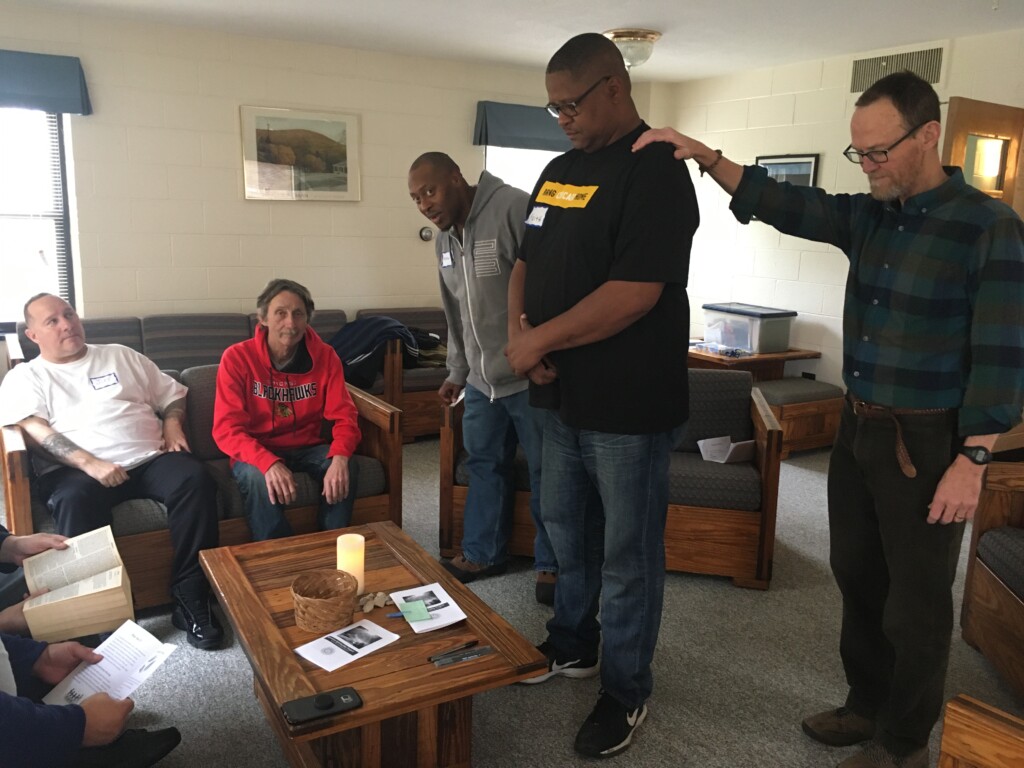
Margarita Nieves-Gonzalez is Vice President of Programs and Housing at A Safe Haven — a Chicagoland organization that provides transitional, recovery, senior and veteran housing and whose caseworkers sometimes refer clients to ISP retreats. She agrees that reciprocal support is an integral part of the path to recovery and stability. “Evidence has shown that more people stay housed when they have that community support. Less relapses happen,” she said. “Being housed will give you that stability and that relief part. But it’s not going to fix the issues around the recovery to maintain that housing. It has to work with a network of community that is going to be able to support you during the process.”
Mike Tobin is an ISP Chicago-based volunteer who leads the men’s groups. As a retired clinical psychotherapist, he has also seen the evidence in peer-to-peer support. “It was not only recovery, it was discovery that they were a person. ‘I deserve a life and I can be loved. I can make a contribution to other people. There’s hope for me,’” he said. “There’s hope when you see people who have survived this. You see men and women who’ve lived these lives and see what’s possible. A psychologist doesn’t provide that.”

Providing free services and operating exclusively on philanthropic support, ISP’s ministry is supported by people like Brown, who has volunteered for eight years. “Now, mind you, I’m still growing. But I’m talking to people who are just starting,” she said. Brown helped make a video to assist with ISP witness training and was shocked by what she saw. “I was shaking because I had never seen that person. I’ve spoken many times before, but I have never actually seen myself do it. When I sat and listened, I felt my pain. I heard myself, and I promised myself that I would never hurt me again.” She says that ISP provided her with the gifts of good memories, values and responsibility. “They gave me hope, friendship, a peace of mind.”
How to Help:
A donation to Ignatian Spirituality Project directly supports a compassionate mission that transforms lives through spiritual healing and companionship. Your contribution helps empower individuals recovering from homelessness and addiction, fostering communities of hope and belonging.

More From Better:
- 31 Best Things to Do in Chicago and the Suburbs This December 2023
- The 2023 Guide to Giving in Chicago and Beyond
- By the Numbers: How Your $100, $500, and $1000 Donations Impact These Chicago Nonprofits

Claire Zulkey is a writer based in Evanston, IL, where she was born and raised. Her writing has appeared in local publications like Block Club Chicago, the Evanston Roundtable and Chicago Magazine as well as national publications like the New York Times, Wall Street Journal, and the Atlantic.
